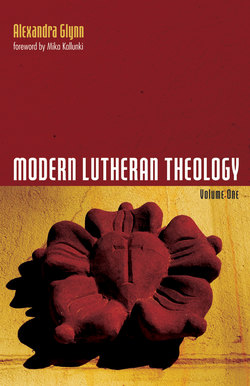Читать книгу Modern Lutheran Theology - Alexandra Glynn - Страница 12
На сайте Литреса книга снята с продажи.
Love the stranger
ОглавлениеIn the Bible we are reminded: “Love the stranger, therefore, for you were strangers in the land of Egypt” (Lev 19:34). He does not only say “love the stranger.” He says “love the stranger” and then he tells you why. He says: you were just like those strangers. At one time that was you, a stranger, in the land of Egypt, the land of the unrighteous. And the unrighteous shall not inherit the kingdom:
Know ye not that the unrighteous shall not inherit the kingdom of God? Be not deceived: neither fornicators, nor idolaters, nor adulterers, nor effeminate, nor abusers of themselves with mankind, nor thieves, nor covetous, nor drunkards, nor revilers, nor extortioners, shall inherit the kingdom of God. And such were some of you; but ye are washed, but ye are sanctified, but ye are justified in the name of the Lord Jesus, and by the Spirit of our God (1 Cor 5:9–11).
I think sometimes that unbelief, Egypt, is difficult for childhood Christians to understand and remember. This is why we have to stand by what Scripture says, and know it well, and not go by what the first inclination of our heart is. For when we grow up as a childhood Christian we are preserved from so much. The fleshpots of Egypt are foreign to us, the worldly ways of talking, the things done for entertainment, the relationships between husband and wife, parents and children—all these things are like things that happen on another planet.
But the Bible says “you were strangers in the land of Egypt.” So we have to constantly remind ourselves, I would be just like that, I would be just like those others, if God had not had mercy on me. I would be wearing all that strange adornment, I would be speaking that way and holding grudges. I would be a hater (Titus 3:3). I would be praying on the street-corners in stark self-righteousness. I would be in the drinking and entertainment venues of this world, a slave to my desires. I would never be in meekness instructing those who oppose themselves (2 Tim 2:25).
I have sometimes thought in connection with this text about loving the strangers that two of our beloved New Testament writers had their time in this world—Paul and Peter. So they understood what it had been like to be in darkness—they didn’t have to imagine themselves in the shoes of the one who was not a Christian. They had lived it. “By the grace of God I am what I am,” Paul confessed (1 Cor 15:10). Exactly. By the grace of God. We have a saying in English which is not from Scripture but captures the idea of Scripture so beautifully. We say this saying when we see a homeless person on the street, or when we see someone taking a hard fall into the fearsome places of this world: “There but for the grace of God go I.”
